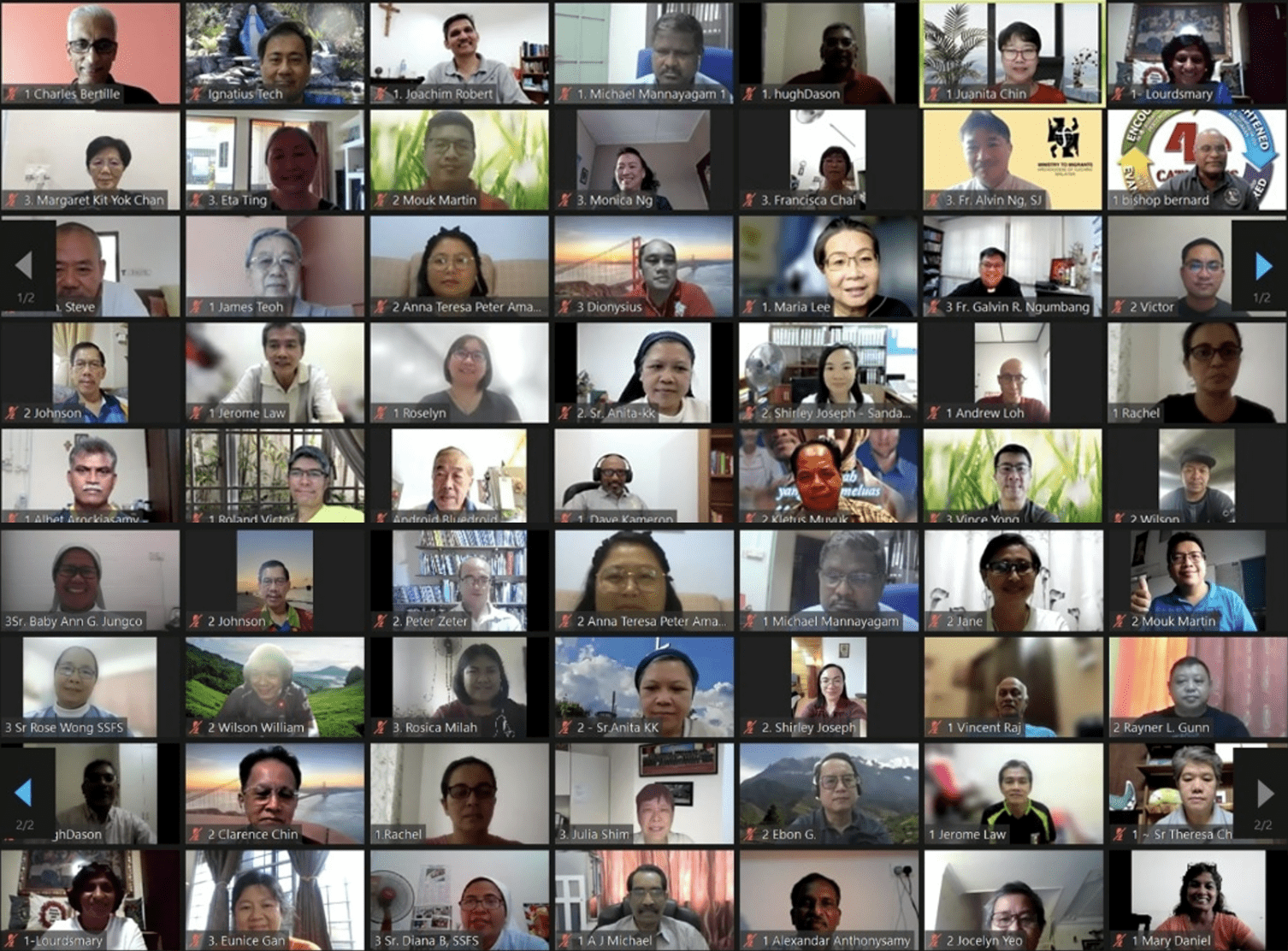The head of the Catholic bishops’ conference in Malaysia urged the Church’s social action arm, Caritas Malaysia, to identify weaknesses and priorities as it formulates plans for future action.
“It is time for us to read the signs of progress, weakness, concerns and priorities that are in front of us,” said Bishop Bernard Paul, head of the bishops’ conference of Malaysia, including Singapore and Brunei.
The prelate spoke during the online planning meeting of Caritas Malaysia in January that was participated by about a hundred people from nine dioceses in the country.
“This is the time for us all to hear, listen and start preparing for a long journey ahead,” said Bishop Paul. “We must be bold, move forward and be the voice of our parishes and dioceses for the future,” he said.
The bishop encouraged everyone “to acknowledge that all parishes and dioceses are different with differing concerns and priorities” and “to find out what are the common and regional concerns” in all the differences.
Caritas Malaysia started its planning process in October last year through discussions among diocesan directors on the need to review the activities of the organization in line with is vision, mission and values.
During the process, representatives from Sabah raised concerns on the need for fundraising and administration of funds, accessibility, clarity of structures and procedures, collaboration between parishes and the diocese, and capacity building.
Sarawak expressed the need for training of volunteers, especially in building and enhancing their skills in management, understanding and creating awareness on Caritas spirituality, building resilient communities, enhancing relationship and communication among social mission groups, and attracting youth to Caritas activities.
Representatives from Semenanjung highlighted what they described as the “lack of understanding on the function and mission of Caritas across all levels” even as they expressed the nee to attract more volunteers, and to focus on capacity building, spirituality, organizational skill sets and infrastructure.
The priorities identified by the meeting in January are:
- Restoring community, relationships and spirituality.
- Deepening in Caritas spirituality and the Catholic Social teachings.
- Communicating, sharing hope and collaboration.
- Calling and forming a new generation of Caritas volunteers and leaders.
- Climate change and disaster preparedness which has to integrate “care for our common home.”
- Integrate cross-cutting themes, such as spirituality, communication and safeguarding
Bishop Paul reminded everyone to “constantly ask ourselves ‘What is the Spirit saying to the diocese, the region, as well as the national Caritas?’”
“We are also called to a new generation of leadership, (to) implement new ways of responding and doing things in everything that we do,” he said.
The bishop said that when weaknesses are discussed “it does not mean that we have failed but we are working and moving forward with existing resources.”







